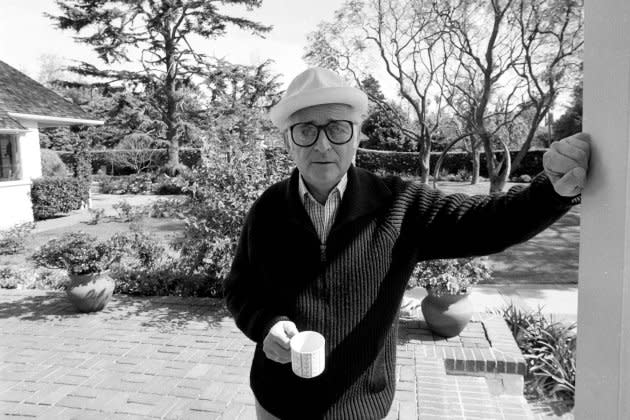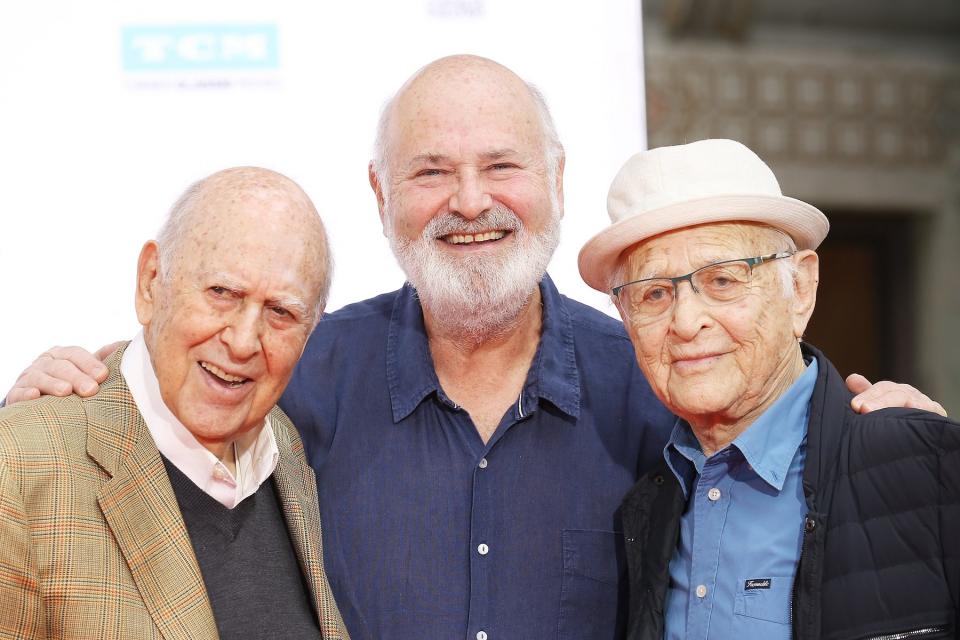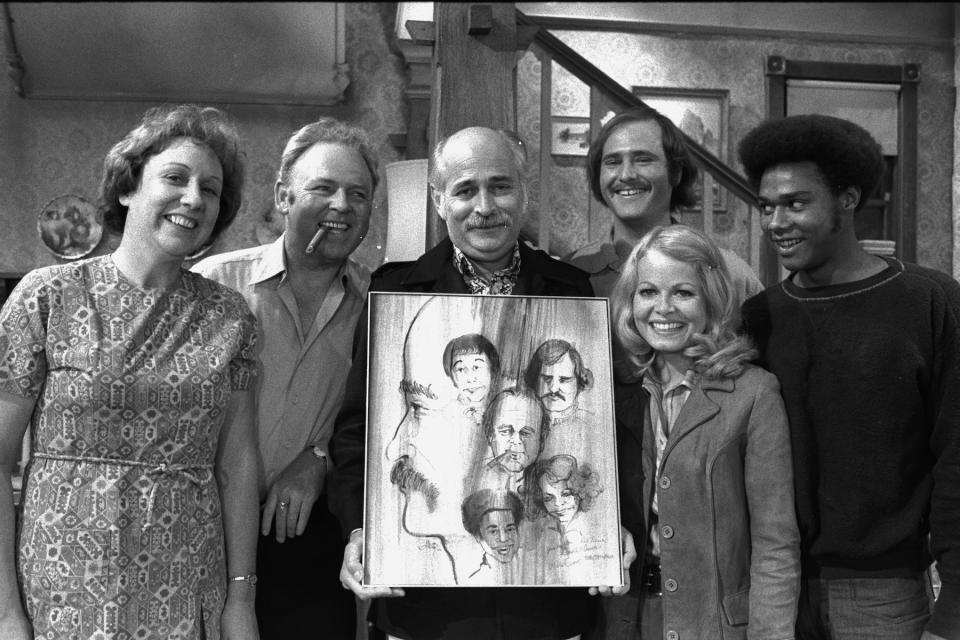Rob Reiner: Norman Lear Fought People Like Trump His Entire Life

The great Norman Lear died on Dec. 5 at the age of 101. Over his eight-decade career in showbiz, the television wizard developed more than 100 shows, many of which presented a more idealistic vision for America: All in the Family, Sanford and Son, Maude, Good Times, The Jeffersons, One Day at a Time, Diff’rent Strokes. Lear’s shows tackled hot-button issues — including racism, sexuality, misogyny, and abortion with brutal honesty — thrusting important conversations into the cultural zeitgeist, while remaining entertaining and funny.
There will never be another Norman Lear, and on the day of his death, Rolling Stone spoke with Rob Reiner, who famously portrayed Michael “Meathead” Stivic, the progressive son-in-law of Archie Bunker who constantly butted heads with the bigoted patriarch over the aforementioned topics, about Lear’s TV and political legacy.
More from Rolling Stone
Jimmy Kimmel Pays Tribute to Norman Lear by Sharing Explicit-Filled Letter From TV Icon
Trump Could Tap Taylor Swift Conspiracy Theorist as Attorney General: Report
Reiner, an actor, filmmaker and activist responsible for such classics of his own like This Is Spinal Tap, The Princess Bride, and When Harry Met Sally…, considered Lear to be “a second father,” and spoke glowingly about the TV legend’s political contributions, which included everything from fighting the Nazis in World War II and founding People for the American Way to combating the Christian right’s political influence to taking on Donald Trump.
What was your reaction when you heard the news that Norman Lear had passed?
It was horrible. I see him all the time and knew he wasn’t going to be with us for much longer. I’d talked to his family the day before and a couple of days before that, so it didn’t surprise me, but I felt a real big ache in my heart. He was like a second father to me. I lost my dad [Carl Reiner] a few years ago in 2020 and today Norman, so the two most important men in my life are gone.

And he was working right up until the end.
Yeah, he was. Even when he had slipped out of consciousness. I don’t even know where it came from, but one of his kids was talking to him and said something like, “Dad, you’ll be OK,” and he replied, “Who are we going to get to write that?” The guy was a fighter, and he was tough. I mean, really tough. The guy flew 57 bombing mission over Nazi Germany during the Second World War. He fought for this country and didn’t take crap from anybody. The idea that less than 80 years after we defeat fascism that it’s staring us in the face again, he couldn’t believe it. Where did the country that he loved so much go? I just hope that we get rid of Trump so that we preserve our democracy. All those people in the Second World War worked hard to defeat fascism, so the idea that we would slip into fascism less than 80 years later is unfathomable. He fought this his entire life. Everything he did was to fight for a more perfect Union. And Norman and I had these discussions hundreds of times, and he couldn’t recognize the country he fought for.
And he founded People for the American Way, an organization that took on America’s Christian right and its influence over the country’s politics.
We’re seeing the Christian right being the foundation for everything that happened on January 6, and we’re seeing them embrace Donald Trump. It’s that same fascistic sensibility: it’s their way and nobody else is allowed to have their thoughts. He’s been fighting that for decades. We just finished this documentary God & Country about the rise of Christian nationalism, and everything he’s fought against still exists — and it not only exists, but is taking over. It has a major foothold on the American psyche. We have to do everything we can in this upcoming election to make sure it doesn’t win. It’s not an exaggeration to say you’re either voting for democracy or fascism.

How do you feel Norman Lear painted a better vision of America through his shows like All in the Family?
He had the rare ability to present reality — hard reality — and also entertain you and make you laugh. That’s a very tough thing to do. He started with All in the Family, and showed the bigotry and racism of Archie Bunker, and all the fights that Archie and Mike got into. That was an extension of what was going on in America, but it was submerged then. Now, it’s out in the open and we can’t talk to each other anymore. When All in the Family came on, we were a country of about 200 million people, and you had to watch it when it was on, so every single week about 40 million people out of 200 million had a shared experience. And we presented issues that everybody talked about and had a water cooler conversation about the next day. Now, we’re a country of 335 million and if you’ve got 10 million people watching something you have a big hit, and you’re not watching it at the same time, and we don’t have honest discussions anymore. Everyone is in their own silos and listening to what they want to hear. They’re not listening to the other side. At least our show brought on conversations and you could talk to them about people without wanting to kill the other person. It’s devolved into something really ugly and you can’t talk to other people because we don’t share a common set of values. At least when we were on, there were a common set of values. You knew what America stood for and what the Constitution was about. You can’t even agree that two plus two equals four now.
Norman Lear had taken a step back from political activism starting in the Nineties, but it seemed like the Trump years reactivated him in a sense. He felt the urgency of it.
You couldn’t not. Every thinking, breathing person on the planet knew what they were facing there. And I think it’s interesting that people are starting to wake up to what the choice is: fascism or democracy. That’s the actual choice. He was alive and aware of everything going on around him. And he always wanted to make things better, and he always wanted to stir the pot around him. That was what I always loved about him. When we made our shows, he always pushed us to make things better. There’s a Yiddish word called kochleffel, which means a ladle or stirring spoon, and he stirred the pot. And god love him. There’s nobody who’s really doing that now on any consistent basis. He taught me that you can use your voice, your celebrity to make a difference and fight for things to be right.
Best of Rolling Stone
